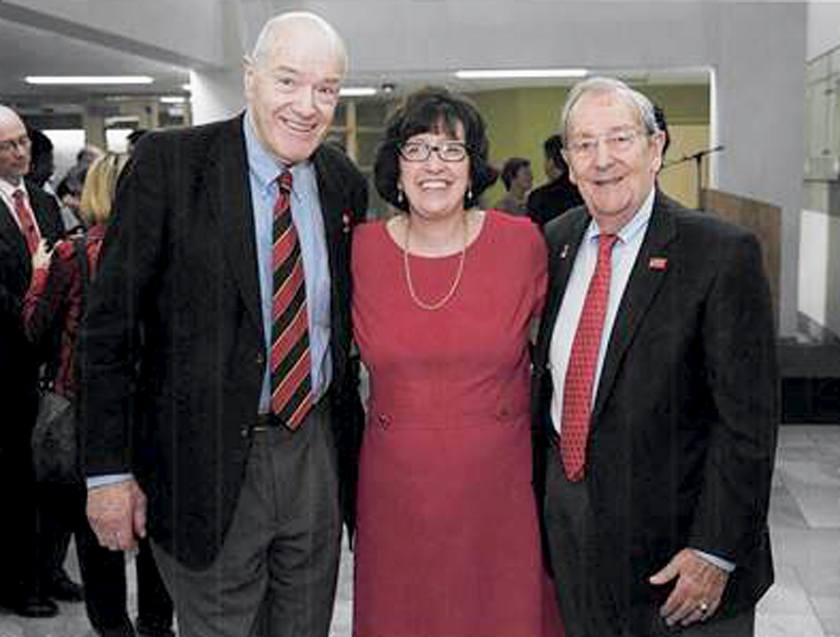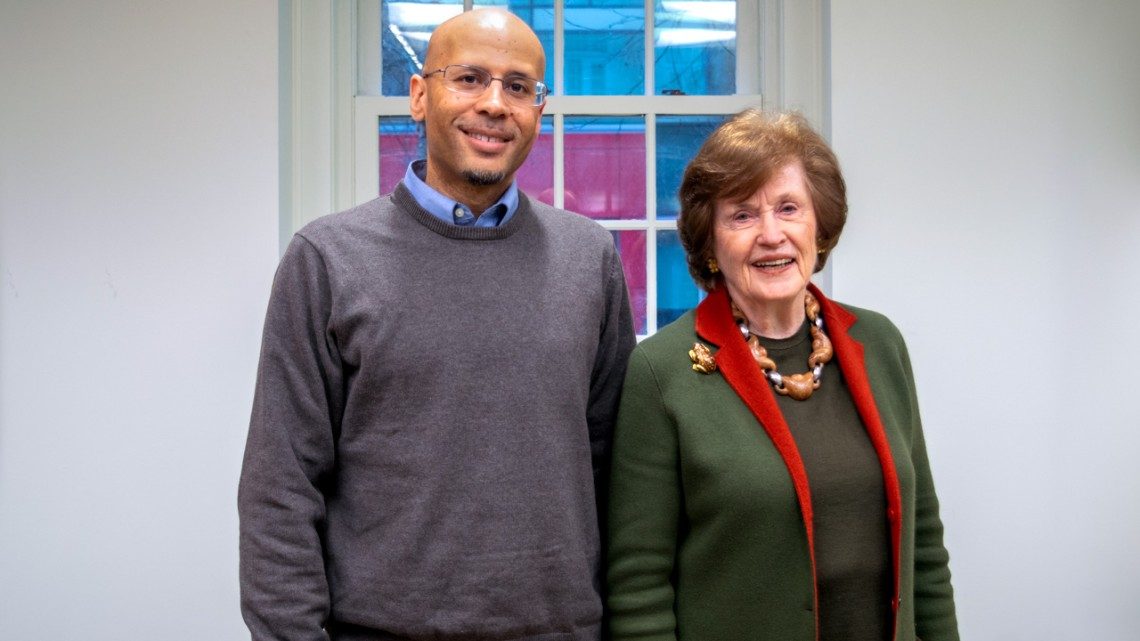Members of the Class of 1955 recently celebrated their 65th Reunion. These octogenarians have also been steadfast supporters of Cornell Health.
In 2015, the Class of 1955 and Peter Schluter ’55 gave a $100,000 gift to name a room in the new Cornell Health facility. In July 2020, the class responded to the call again, donating $25,000 from their class treasury to support upgrades to the electronic health records system at Cornell Health.
The new upgrades will bolster the unit’s pandemic response by enabling contactless self-check-in for telehealth and in-person appointments, coordinated management of COVID-19 testing clinics on campus, and efficient monitoring of students who are in isolation or quarantine.
“Cornell Health is grateful to the Class of 1955 for their generous and ongoing support of student health,” says Sharon McMullen, assistant vice president of Student & Campus Life for Health and Wellbeing. “Gifts like theirs allow Cornell Health to cultivate the staffing, physical spaces, and systems necessary to stay on the cutting edge of college health.”
A desire to do the most good
This is where Michael thought our money could do the most good.

Both gifts were initiated by Michael Avery ’55, a loyal Cornellian and former class president who was diagnosed with ALS, also known as Lou Gehrig’s Disease, in March 2020. Avery died in June, a few days before his 65th Reunion.
Though Avery did not live to see the new gift come to fruition, the current class president, Bill Doerler ’55, worked with the other class officers to finalize the gift in July. “The $25,000 gift from the class seemed appropriate, given the COVID crisis and the fact that Cornell Health could really use these enhanced software capabilities to deal with the pandemic,” says Doerler.
Fred Antil ’55, also a past class president, says that, “this is where Michael thought our money could do the most good.”
A space dedicated to student health

The 2015 gift supported Counseling Room 354, located on Level 3 of Cornell Health. This space is currently “home base” for a therapist from Counseling and Psychological Services (CAPS) who, as part of a CAPS outreach team, works closely with Cornell faculty and staff members when they have concerns about the well-being of a student. Team members share information and resources and work with the faculty or staff member to explore strategies for helping the student.
“We anticipate that faculty and staff will need increasing information and guidance as students—especially students with underrepresented identities on campus or from marginalized communities—experience increased stress during campus reactivation and the COVID-19 pandemic,” says McMullen.
Gifts like theirs allow Cornell Health to cultivate the staffing, physical spaces, and systems necessary to stay on the cutting edge of college health.
A rapid response to the pandemic

The recent gift has already been put to good use. Cornell Health has purchased the new electronic health records modules and is currently “test driving” the software in preparation for the reopening of campus in late August. The software is designed to streamline several processes, including online scheduling, check-in, and routing of samples for COVID-19 testing.
The new modules will allow Cornell Health to link individual test results in order to better track and manage students who are placed in quarantine. They will also introduce touchless check-in for all in-person visits to Cornell Health.
McMullen anticipates that the new technology will allow students to be able to check in and have their necessary lab tests ordered in about 15 seconds. “Such rapid medical care is critical during a pandemic,” she says, “as we are doing all we can to minimize possible exposures to COVID-19 in clinical settings.”
“During this challenging and unprecedented time, the Class of 1955’s gift allows us to use emerging technologies to provide critical medical care and mental health support to our students,” McMullen says.





